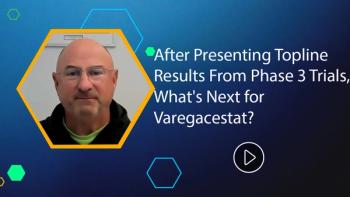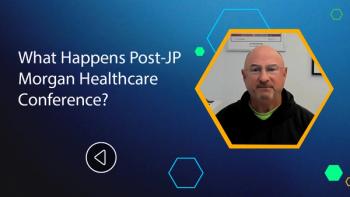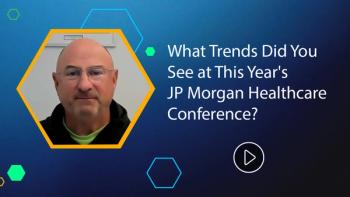
Counterfeit Weight Loss Drugs & Potential Health Risks
In this part of their Pharmaceutical Executive video interview, UpScriptHealth's Peter Ax, Founder and CEO, and George Jones, Chief Operations Officer, discuss the issue of counterfeit weight loss drugs, and the potential health risks associated with them.
How widespread is the issue of counterfeit weight loss drugs, particularly fake Ozempic, and what are the potential health risks associated with these products?
Peter Ax: When we're talking about weight loss growth, we're really talking about the GLP ones, which are so popular right now. And as early estimates were that the market is going to be about a $50 billion market at scale. More recent estimates are saying it'll be as much as $100 billion plus market. And what we've assumed is, if you think about, we're probably at a phase of between Novo Nordisk and Lily selling about ten billion of the drugs. And then you equate and say, well, we're probably seeing about 10% of the market going into various compounding forms. You're looking at what is perhaps as much as a billion dollar marketplace in compounded drugs right now.
Now, if you want to talk about the risks associated with that of purchasing drugs on a compounded basis, you really have to think about risks in two levels. One is, there's the risk of the physician interaction and how robust it is and how meaningful it is and how safe it is. And then the second one is, how safe are these compounded drugs? These are not the branded drugs being manufactured in FDA facilities. They're being manufactured in compounding pharmacies, which are licensed and are inspected, but there's certainly more of a risk when you purchase a drug that is compounded than it is manufactured in an FDA approved facility.
So, I think you have to think in terms of risks two levels. You need to deal with a reputable firm online that's providing a robust telehealth, offering a robust interaction with clinician that's going to ask about your medical history, that's going to learn about potential drug interactions, that's going to speak to you about how to effectively use these drugs and how to safely use these drugs. And then secondly, do a second level of assessment of, okay, what is this compounding pharmacy? Who are they that I'm purchasing these drugs from? Are they properly licensed? Have there been any regulatory issues against them? Have there been any lawsuits against them? Have there been a patient care problem, etc.?
So, you really, if you're going to purchase drugs online, if you're going to have interactions with clinicians online, you really have to do your homework. You really have to be smart about this, because, let's face it, we are investing potentially, really meaningful drugs that interact with our systems, and we need to be really cautious about what we're buying.
George Jones: The only thing I would add to that just kind of twofold when you think about the risks of the compounded GLP ones, that there's been an emergence of risk with, I'll say in quotes, overdoses of the GLP ones, whereas, if you buy the manufactured supply, supplied medicines, they come in auto injectors. It's a simple, obviously injection that you either with brand Ozempic, which is the click pen, or the Wegovy product that is just, just a single use auto injector. So that you can help manage your titration that way, whereas with the vials and what you get from the compounded pharmacies, compounding pharmacies, patients will often, you know, over or potentially underdose the medicine, causing either a lack of effect or significant side effects via overdosage. So that is definitely a concern for patients, and I'll say healthcare professionals out there with these compounded, compounded medicines. And the other, Peter spoke about the counterfeit and compounded GLP-1s. We also see it.
You know, we have a client of script, a company called Currax pharmaceuticals, product called Contrave. Contrave was originally approved by the FDA, I believe in 2014 it's a combination of naltrexone, Bupropion. You will see online generic Contrave advertised and that is typically a compounding pharmacy or telemedicine company will prescribe both separate generics of the Bupropion and now naltrexone. Unfortunately, you know, specifically with the naltrexone, there is no generic, extended release naltrexone, so these patients will be getting an immediate release medication in an off dose, which also could cause different effects and significant, significant side effects. For a patient, if they take that, they call it generic. There is no generic, Contrave. So that puts patients, I believe, at significant risk of side effects as well.
Newsletter
Lead with insight with the Pharmaceutical Executive newsletter, featuring strategic analysis, leadership trends, and market intelligence for biopharma decision-makers.




